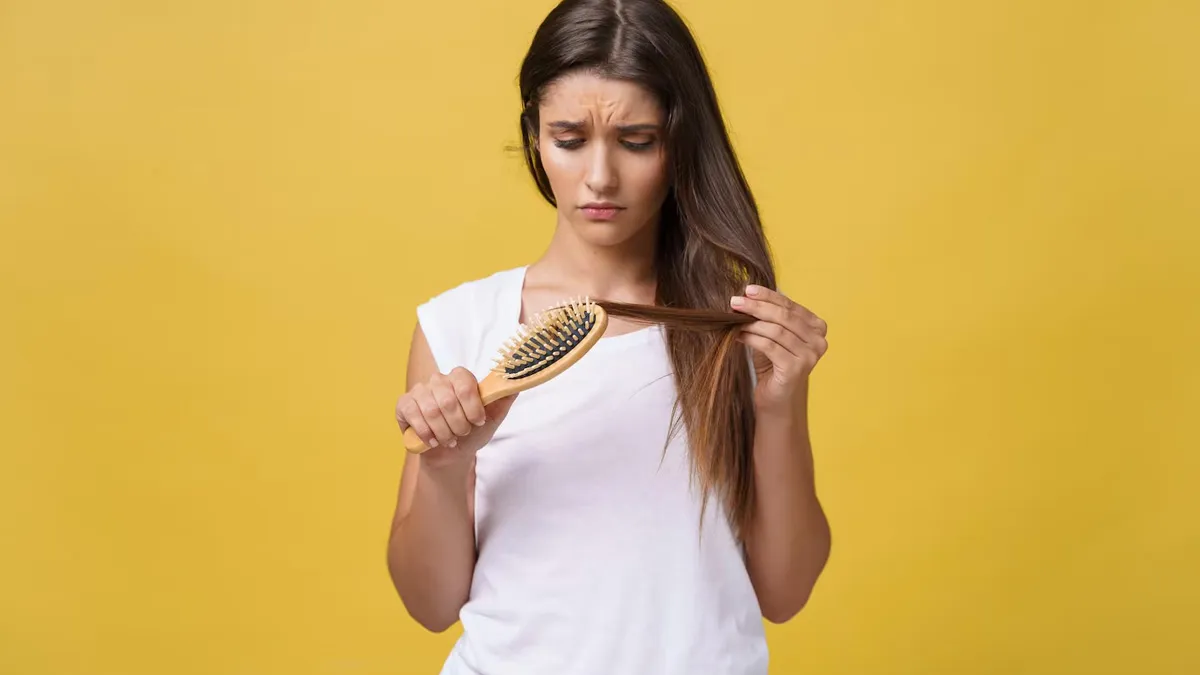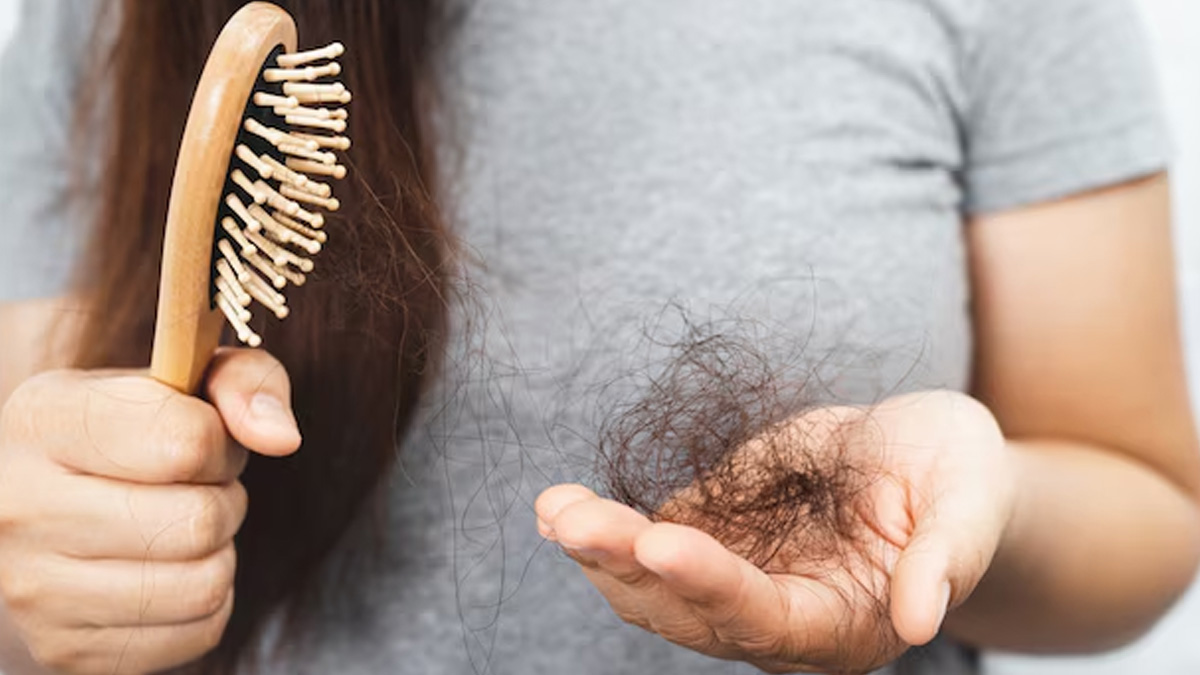
Experiencing hair loss can be traumatic, particularly when accompanied by another chronic condition such as diabetes. Many individuals with diabetes gradually observe hair loss or hair thinning with little or almost no regrowth. This condition brings the connection between poorly controlled blood sugar levels and scalp hair loss under scrutiny. Although not every person with diabetes experiences hair loss, imbalanced blood sugar levels affect the hair cycle and the general scalp condition by creating a hostile environment for hair growth.
Table of Content:-
To understand the link between blood sugar and scalp health, we spoke to Dr BL Jangid, Dermatologist, Hair Transplant Surgeon, and Founder of SkinQure Clinic, New Delhi.
Connection Between Blood Sugar and Scalp Health
The growth of hair requires a steady flow of blood, nutrients, and balanced hormones to the scalp. can impair these functions. Dr BL Jangid explains, “When blood sugar levels remain high for a prolonged period, it damages the blood vessels and affects the oxygen flow and the nutrients to the scalp and the hair follicles.”
He continued, “Poorly controlled diabetes leads to hair loss because high blood sugar creates resistance in the tiny blood vessels, which is known as immuno-vascular resistance, and reduces blood flow to the scalp. This poor circulation, combined with a high inflammatory condition, starves the hair follicles of nutrients. As a result, the follicles either stop producing hair entirely or produce weaker and thinner hair.”
How Diabetes Leads to Hair Loss
According to Science Direct, a medical research platform, due to imbalanced sugar levels in the body, hair loss commonly occurs on the central scalp, and this mostly affects women. Dr Jangid explains the reasons that eventually lead to hair loss and hair thinning:
Poor Blood Circulation
High blood sugar levels can cause damage to small blood vessels and diminish blood flow to hair follicles. This creates a barrier in your scalp, blocking the circulation of oxygen and nutrients. Due to the lack of nutrients and oxygen, hair weakens, resulting in severe hair loss.
Also Read: Understanding Genetic Vs. Lifestyle Factors In Childhood Diabetes
Telogen Effluvium
Stress stemming from Diabetes and certain metabolic alterations can force a greater number of hair follicles into the resting phase, known as telogen. This results in excess shedding, typically occurring after a couple of months.
Hormonal Imbalances
To manage Type 2 diabetes, patients regularly have to take insulin shots. This balance of hormones, such as androgens and cortisol, but results in hair thinning. This is particularly the case in women and children.
Weak Immune System
In several cases, diabetes compromises the immune system and heightens your risk for scalp infections such as fungal or bacterial folliculitis. This further aggravates hair thinning or complete hair loss.
Medications
To manage blood sugar levels, patients must consume medications, which can often cause temporary hair shedding. A heavy dose of a few medications can even lead to hair loss on different body parts, including arms and legs.
Nutrient Deficiency
Poor control of glucose levels can lead to deficiencies in vital nutrients caused by impaired absorption. Deficiency of essential vitamins for hair growth, such as biotin, zinc, and vitamin D, might affect natural hair growth.
Also Read: World Diabetes Day 2025: Expert Explains Diabetic Foot’s Symptoms, Early Warning Signs, Treatment, and the Role of Diabetic Socks
Hair Loss Related to Diabetes: Is It Reversible?
Hair loss related to diabetes is reversible if treated on time. Dr Jangid stated, “To reverse hair loss associated with diabetes, the necessary measures are optimal blood sugar control, balanced diabetes nutrition, along with targeted scalp therapy.” However, the duration of uncontrolled blood sugar levels and the extent of damage to the hair follicles affect the possibility of hair regrowth. Below are a few tips suggested by Dr Jangid to manage and reverse hair loss:
Blood sugar control: Uncontrolled blood sugar for prolonged periods damages blood vessels, leading to insufficient blood circulation and poor hair growth.
Stress control: Stress affects both blood sugar levels and hair loss separately. To manage stress and anxiety, it is advised to practice meditation, yoga, aerobic exercise, and other physical exercises.
Balanced Nutrition: One should include plenty of carbohydrates, particularly complex carbohydrates, in the daily diet. Along with this, an adequate amount of protein, vitamin B-complex, Vitamin D, Vitamin E, and minerals such as iron and zinc should also be consumed on a regular basis.
Hormone and Thyroid Check: Given the common connection between thyroid and diabetes, hormonal imbalance can lead to hair loss. A timely check-up and a few lifestyle changes will help you improve.
Hair Treatments: If you already have weak and Fragile hair, do not use heat or harsh chemicals, as it will worsen the hair's health.
Bottomline
Hair loss can be due to several reasons, and to cure the condition, the very first step is to find the real cause. If you observe persistent hair loss or thinning, seek professional help from a trichologist and dermatologist to diagnose the root issue and improve scalp health.
Also watch this video
FAQ
Can hair loss from diabetes be reversed?
Yes, hair loss from diabetes can be reversed if diagnosed on time.Can vitamin D stop hair loss?
Hair loss can occur due to several reasons, including Vitamin D deficiency. If a diagnosis shows a low Vitamin D level, the doctor may recommend Vitamin D supplements.What is the main cause of hair loss?
The main reasons behind hair loss include genetics, nutrient deficiency, diabetes, stress, and anxiety.How to self-treat diabetes?
It is recommended to get a diagnosis from a professional doctor for diabetes treatment; however, for better results, one should take a proper nutrient-rich diet, do regular exercise, and avoid junk food.
Read Next
World Diabetes Day 2025: Diabetic? Expert Shares Tips To Boost Your Odds of a Healthy Pregnancy
How we keep this article up to date:
We work with experts and keep a close eye on the latest in health and wellness. Whenever there is a new research or helpful information, we update our articles with accurate and useful advice.
Current Version
Nov 14, 2025 11:02 IST
Published By : Sameeksha Sharma
